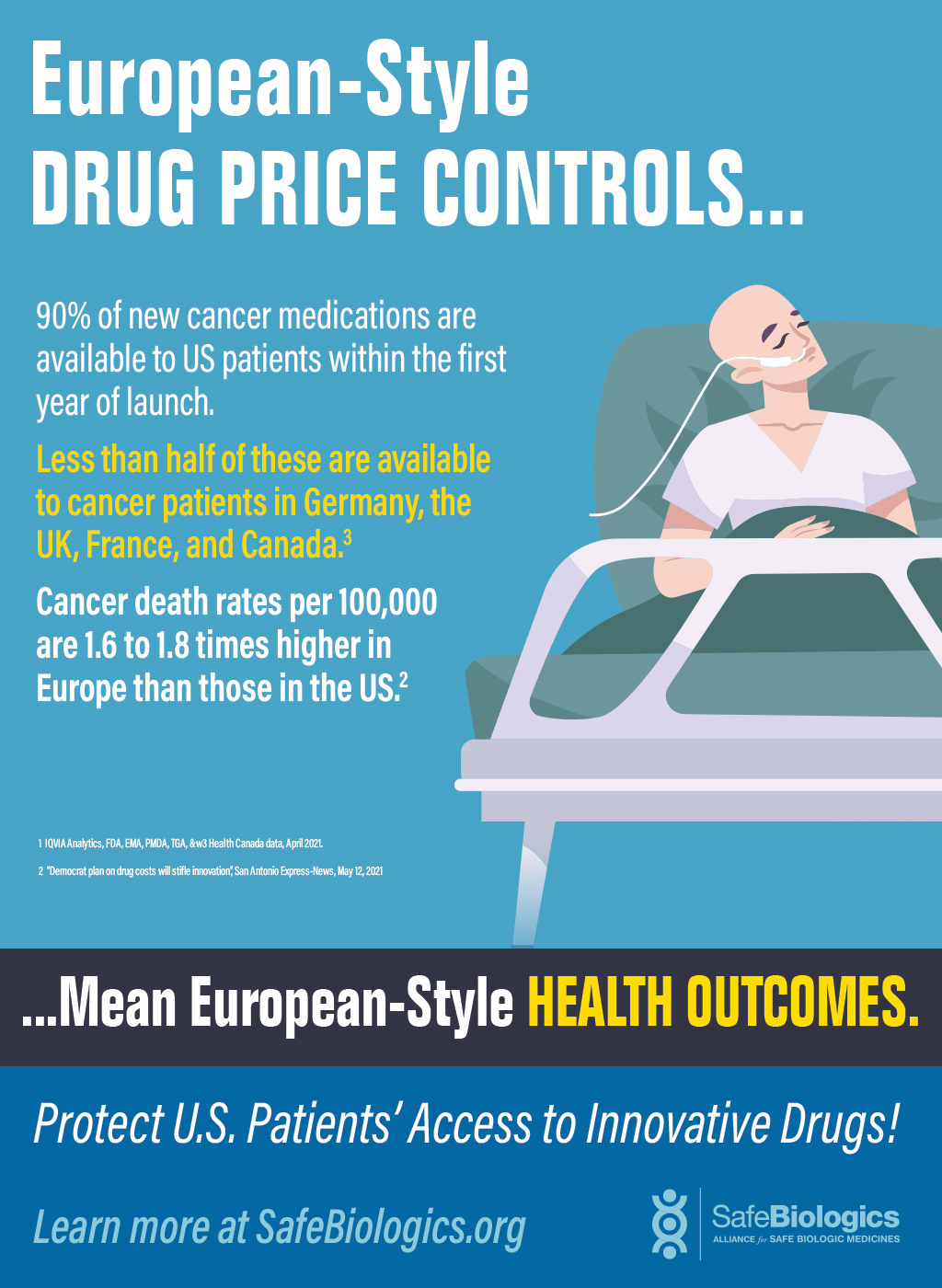2022’s Inflation Reduction Act (IRA) contains drug price negotiation provisions which discourage innovation and will ultimately result in reduced patient access to new therapies. European experiences with drug price controls have shown this to be the case. Fewer new medicines are developed in Europe, and European patients have lower access to new drugs and higher cancer death rates than American patients.
Certain categories of medicines are especially vulnerable, including small-molecule drugs, cancer therapies, and treatments for rare disease. The IRA is also expected to harm biosimilar development and market entry by reducing prices of the originator products, making investment in biosimilars less profitable.

ASBM Resources
ASBM has produced a number of educational resources highlighting how the IRA’s provisions will likely reduce, rather than increase, patient access to new innovative medicines:
Speakers included:
Michael S Reilly, Esq; Executive Director, Alliance for Safe Biologic Medicines, USA
Thomas R Barker, Esq; Former Acting General Counsel of the US Department of Health and Human Services; Former Commissioner of the Medicaid and CHIP Payment and Access Commission (MACPAC), USA
Charles Clapton, Vice President, Federal Government Affairs, Gilead Sciences, USA
These three former government officials worked on the development and implementation of Medicare Part D, the prescription drug benefit which is being modified by the IRA’s new price-setting provisions.
Podcast Episode: IRA Medicare Drug Price Setting (audio file here)
GaBI Journal Report: Inflation Reduction Act and Medicare Drug Price Negotiation
Fact Sheet: How IRA Impacts Cancer Research & Development
Comments to CMS on IRA Price Negotiation Provisions
Op-ed: IRA’s Impact on Cancer Drug Development
ASBM Statement on Medicare Drug list announcement
Educational Microsite for Patients: IRAPatientInfo.org
